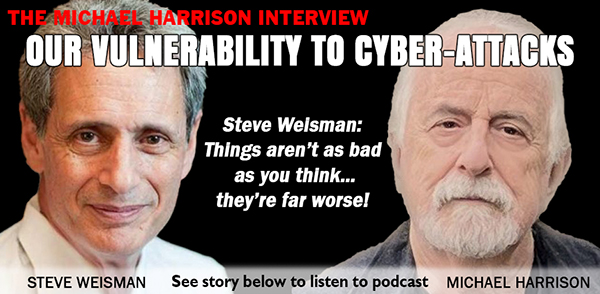The State of Journalism in 2024: Why Talk Media Needs Investigative Reporting Now More Than Ever
By Ted Bridis
University of Florida
Professor
 The headlines haven’t been kind to journalism lately. That recent New York Times piece declaring its demise? It wasn’t exactly a morale booster. The Messenger, created to revitalize journalism in the digital age, shut down after just one year. Sports Illustrated was on the cutting block until Minute Media came onto the field with a Hail Mary to save the 70-year-old publication. The Wall Street Journal laid off a slew of talented reporters despite record profits. Yet, some of these decisions have nothing to do with the state of journalism but are based on balance sheets, declining advertising buys, and changing tastes in media consumption.
The headlines haven’t been kind to journalism lately. That recent New York Times piece declaring its demise? It wasn’t exactly a morale booster. The Messenger, created to revitalize journalism in the digital age, shut down after just one year. Sports Illustrated was on the cutting block until Minute Media came onto the field with a Hail Mary to save the 70-year-old publication. The Wall Street Journal laid off a slew of talented reporters despite record profits. Yet, some of these decisions have nothing to do with the state of journalism but are based on balance sheets, declining advertising buys, and changing tastes in media consumption.
David S. Levine of the Times of Israel has written, “Journalism is dead. You are on your own.” But here’s the thing: I’m not buying it.
As a journalism professor at the University of Florida with more than 35 years in the industry, I’ve seen my fair share of ups and downs. Remember the rough economic patches of 2001 and 2008? The internet’s constant disruption? We’ve weathered those storms, and we’ll weather this one, too.
In fact, universities like mine are leading the charge in a new era of journalism. The investigative, political journalism and public policy reporting classes that I teach feed directly into something near and dear to me: credibly holding powerful institutions accountable. And we’re building partnerships to help sustain the industry.
Our Fresh Take Florida news service distributes significant reporting by our undergraduate journalism students to major news outlets across Florida. Newsrooms receive high-quality content for their readers, viewers, and listeners. Students earn real-world experience covering challenging subjects and gain exposure with editors and news directors who hire them when they graduate. Every semester, sadly, my classes of young reporters dwarf the size of many professional newsrooms in some of Florida’s biggest cities.
Talk media is especially vulnerable as our journalism industry works its way through these latest challenges. It relies on journalists to unearth those hard-hitting stories, identify credible sources, and separate fact from fiction.
Here’s the truth: Talk media can’t function without a healthy investigative journalism ecosystem. They need that next generation of journalists I’m training — reporters who are not just trustworthy and credible, but efficient and effective in getting the story out quickly. After all, in today’s fast-paced world, talk radio often relies on journalists for its content.
This is precisely why investigative journalism programs around the country and the Collier Prize for State Government Accountability are so crucial. The $25,000 Collier Prize, established at the University of Florida with a generous gift from Nathan Collier, a descendent of the family that founded the pioneering investigative journalism magazine Collier’s in the late 1880s, is one of the largest journalism awards in the country. It recognizes and celebrates the very kind of investigative reporting that underpins strong talk media.
We’re fostering a new breed of investigative journalists who can seamlessly serve the needs of both traditional and talk media. They understand the importance of speed and accuracy, the ability to distill complex issues into digestible segments, and the value of unearthing stories that spark conversation and hold power to account.
The future of journalism isn’t about flashy headlines or clickbait. It’s about dedicated professionals committed to truth, transparency, and giving a voice to the voiceless. It’s about investigative reporting that illuminates injustice and empowers citizens. And it’s about demonstrating to readers, viewers, and listeners that objective, hard-hitting journalism is worth paying for, after a generation where we gave it away free online.
Talk media is dependent to a degree on the success of the rest of the ecosystem, which is an important point. We highlight and identify credible sources who then become guests on programs that can go into a lot more depth than they can with a quote in a 1,000-word story. Talk radio very much has a stake in the success of journalism. They need this next generation of journalists to be better than ever — credible, trustworthy, and ethical but also efficient and effective — working expediently to get the story told because in a lot of cases talk radio is getting its content from journalists.
We are never not going to need journalists. That’s the silver lining — democracy needs journalists. It needs trustworthy, independent, independently minded journalists who seek the truth and report it. That sentiment is alive and well, and talk media needs this kind of journalism now more than ever.
Award-winning investigative journalist Ted Bridis led the Associated Press’ Pulitzer Prize-winning team before joining the University of Florida. He’s known for his expertise in source protection, FOIA law, and uncovering high-profile stories like the Clinton email server and Paul Manafort’s foreign lobbying. Previously, he analyzed national elections for the AP and covered technology, hackers, and national security.



